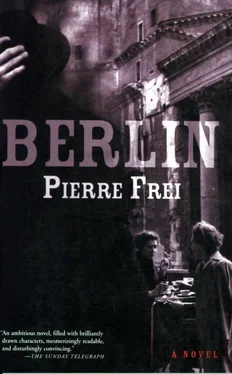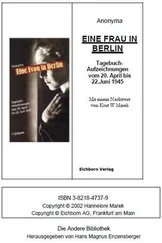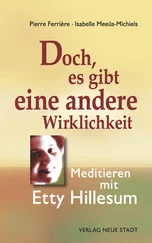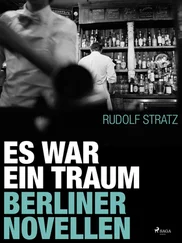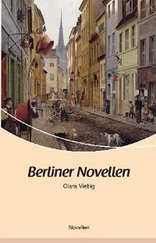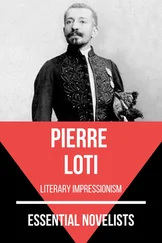'Look, I did what you wanted and spoke to him, and he had a perfectly satisfactory explanation.'
'Try asking him about the university caretaker's son. Isabel says she caught Drechsel at it with the boy in the toilets.'
'He'll deny such a slander and hit back, and then it'll be us in trouble. Drechsel has a long arm. I can already see myself stagnating in the provinces. And you with me.'
'You're a coward.'
'There's no proof.'
'What about little Didi? You talked to the abuser, so now why not talk to his victim?'
'Very well, I'm taking the class for our annual outing on Tuesday. We're going to the Kaiser Wilhelm Tower in the Grunewald. We'll have a picnic and play some fun games. The boys are looking forward to it. I'll have a word with Didi then, just to set your mind at rest once and for all.'
And if you do find out that something happened — will you cover up for Drechsel?'
'Do you really think I'd do a thing like that?'
'I don't know.' And she genuinely didn't. He often seemed so strange to her these days.
Jochen was already home when Jutta came back from work that Tuesday evening. He was sitting at the table, exhausted, staring into space. His voice was barely audible. 'You were right. I'm a coward, I've been a coward far too long.'
'Did you get any information out of Didi?'
'Drechsel has been abusing him and other boys for years.' Jochen looked up. He had tears in his eyes. 'Do you know what the boy said to me? "It doesn't hurt so much now when Herr Drechsel does it to me".'
Shattered, Jutta did not reply. At last she pulled herself together. 'You must report him. Didi will have to give evidence, no matter how unpleasant it is for him.'
Jochen closed his eyes. 'I took the class up the Kaiser Wilhelm Tower. There's a wonderful view from up there. And when we got to the top of the tower Didi jumped off. He died instantly.'
When Jutta thought about it afterwards, she was painfully aware that this was the moment she lost her innocence. It was replaced by a sense of helplessness. She was helpless as she stood by the open grave, listening to the priest who spoke, without knowing the truth, about the confusion of adoles cence. She was helpless as she noted that Drechsel had been promoted and moved to Schwerin and the National Political Education Institute, with a personal commendation from the Gauleiter. She watched, helpless, as a war that she did not want began. Helpless, she learned a few days after the outbreak of war that Jochen was being called up, although teachers were supposed to be a reserved profession. He had tried to get other boys in the class to talk. Forty-eight hours later he was at the Front, with practically no military training.
"'It's against all usual practice. Someone must have pulled a hell of a lot of strings to get rid of you, my dear fellow," said my battalion commander, looking at me as if I were some exotic animal,' Jochen wrote. It was his first letter home, and his last. A Polish sniper caught him on the latrine. No one had told him it was advisable to keep your head down when you answered the call of nature. Jutta received a handwritten letter:
Your husband Private Joachim Weber fell at the battle of Rydcz on 6 December 1939 doing his military duty, true to his oath of allegiance to the Fatherland. May the knowledge that your husband gave his life for the nation, the Fuhrer and the Reich be a comfort to you in your great grief. With regards and sincere condolences,
Kuntze, Captain and Company Commander.
She sent the news on by way of the Red Cross to Herr and Frau Carl Weber, Boescamp Farm, Windhoek, South West Africa. Drechsel killed Jochen and Didi and I shall kill him in return, she swore to herself.
She put Jochen's things away and remembered. It was her way of mourning. She couldn't help laughing when she came upon the photograph of herself leaning out of the window of the railway car, looking flushed, with Jochen's intent face behind her. Isabel had taken it with her little Kodak, in perfect innocence, or so she'd made out. Shaking her head, she put away the savings book for the car, where there were only three tokens missing.
They were to have taken delivery of their brand-new VW in October. It was now probably driving around on war business somewhere. The Waterman was full of blue ink. Jochen had left it behind in the desk. Lost in thought, Jutta drew a couple of hearts on the blotting paper.
Gradually, everyday life began again. The world of Onkel Toms Hiitte, still intact, won the upper hand. Jutta seldom left it. Her days flowed calmly on, divided between Frau Gerold's bookshop and the little Wilskistrasse apartment. The war was going on its victorious way, fortunately far from the Fatherland itself. Even the blaring fanfares of the Reich Radio brought it no closer. What did were hitherto unknown delicacies from allied or conquered countries. Frowein's fruit and vegetable shop was suddenly selling persimmons: no one knew how to eat them. And they had artichokes on sale, and fresh figs. Familiar foodstuffs were available in abundance: only tea and coffee were in short supply. Diana Gerold got both from a woman she knew at the Swiss Embassy.
They closed the shop at one on a Saturday. Then Anja Schmitt came to fetch Diana to play tennis. And we're going to the pictures afterwards. The Zeli is showing a new movie with Zarah Leander. Want to come with us?' But Jutta was going into the city centre. Isabel had promised to bring her back a pair of shoes from Rome.
The Jordans were living on the Kurfiirstendamm, just as Rainer had predicted. He opened the door himself. 'Jutta, you've come at just the right moment. I'm cooking an early supper. I brought spaghetti back from Italy, parmesan too, and we'll have genuine Chianti with it.' The UfA studios had sent him to Cinecitta for negotiations over some films. 'Isabel is staying on in Rome for a couple of days.'
She knew the apartment from earlier visits with Jochen. The big drawing room had modern furniture: pale calfskin leather, white oak, Plexiglas, a few antiques, and as the crowning touch a television set. It looked like a radio with a kind of opaque-glass pane beside the loudspeaker. 'One of the few in private ownership.' said Rainer proudly. 'It cost me six hundred and fifty Reichsmarks. The other forty are in the Berlin field hospitals. They don't show much except for army reports and a Sunday programme with the pretty title 'Transmitting merriment, bringing joy'. Seems they're going to expand programming after the war — they'll even show feature films.'
He put a few drops of olive oil in boiling water and fed the hard spaghetti in until it softened and folded under the water. Tomatoes, garlic and tarragon were simmering in a saucepan.
As antipasto, they each had a can of tuna, calamari and olives in a piquant sauce. 'It's the most delicious thing I ever ate,' Jutta told him enthusiastically.
They have all these things fresh in the Cinecitta canteen.' He poured Chianti. 'They're filming very interesting things there. Some of it's trash, of course. The latest sentimental piece has Beniamino Gigli singing and languishing as a Roman taxi driver. It's sure to be a hit here too. I was supposed to be negotiating a co-production. Hans Albers and Alida Valli as a German-Italian couple. With a dear little Japanese girl as their adopted daughter. The Berlin-Rome-Tokyo Axis bears some strange fruits.'
And the Italians go along with this tosh?'
'They politely suggested I might approach the Spaniards. They'd rather work with the French. Conrad Jung is not best pleased. He was to direct, although he doesn't speak a word of Italian.' Rainer grated parmesan over the spaghetti, frowning over the task and looking delightful, as usual. And there was that tingling again.
He had brought back an espresso machine that you had to turn upside down as soon as the water rose in it. The brew was pitch black and very hot. Jutta drank it, sipping carefully. She put her cup down. 'We never got as far as coffee that time, did we?'
Читать дальше
